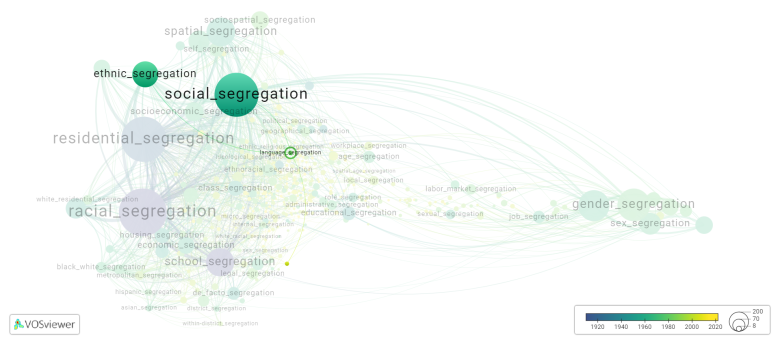Language segregation
Date and country of first publication[1]
1990
United States
Definition
Language segregation refers to the separation or division of people based on the language they speak. This can manifest in various forms, such as discrimination in employment or housing based on language proficiency, the establishment of separate schools or communities for speakers of different languages, or the exclusion of certain language speakers from social or economic opportunities. Language segregation can create barriers to communication and integration, leading to social division and inequality. It is important to promote language diversity and ensure that all individuals have equal access to opportunities regardless of the language they speak.
Synonyms
The following terms are synonymous with language segregation:
language based segregation.
References and literature addressing this segregation form under these synonymous terms can be found below.
See also
Related segregation forms
Language segregation is frequently discussed in the literature with the following segregation forms:
ethnic segregation, social segregation, religious segregation, american school segregation

This visualization is based on the study The Multidisciplinary Landscape of Segregation Research.
For the complete network of interrelated segregation forms, please refer to:
References
Notes
- ↑ Date and country of first publication as informed by the Scopus database (December 2023).
Language segregation appears in the following literature
Imhoff G. (199). The Position of U.S. English on Bilingual Education. The ANNALS of the American Academy of Political and Social Science, 508(1), 48-61. https://doi.org/10.1177/0002716290508001005
Donato R., Garcia H. (1991). Language segregation in desegregated schools:A question of equity. Equity and Excellence in Education, 25(2-4), 94-99. https://doi.org/10.1080/1066568910250214
Castelló X., Loureiro-Porto L., Miguel M.S. (2013). Agent based models of language competition. International Journal of the Sociology of Language, 21-51. Walter de Gruyter GmbH.https://doi.org/10.1515/ijsl-2013-0022
Corvalan A., Vargas M. (2015). Segregation and conflict: An empirical analysis. Journal of Development Economics, 116(), 212-222. Elsevier.https://doi.org/10.1016/j.jdeveco.2015.05.002
Santiago M. (2019). Historical Inquiry to Challenge the Narrative of Racial Progress. Cognition and Instruction, 37(1), 93-117. Routledge.https://doi.org/10.1080/07370008.2018.1539734
Astapova A. (2022). An Estonian Russian Language Club as a Venue for Grassroots Ethnic Integration. Nationalities Papers, 50(3), 498-514. Cambridge University Press.https://doi.org/10.1017/nps.2021.8
